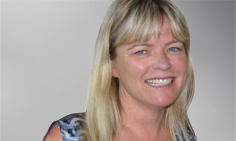THIS week as we wait for the most anticipated federal budget in recent memory, it feels like we are in “a dangerous moment”.
There are big changes on the table and, when it comes to the health and welfare of our most vulnerable citizens, the stakes are high.
The concept of the dangerous moment has long been invoked in politics, war and even finance, along with the idea that timely action is required to avert the dangerous situation. Following this logic, a dangerous moment might also be an opportune moment.
Such moments are often defined in the medical literature, when research findings highlight a new problem or add urgency to a known one. InSight’s news this week is led by an example of this, reporting on a study from the Northern Territory published in the MJA, that shows dementia is occurring more often and earlier in Indigenous than non-Indigenous Australians.
What happens next is important: accurate case finding, community consultation and the provision of appropriate services will make a start, but the key to the future lies in turning these rates around by addressing the antecedent causes.
Not surprisingly, there is considerable overlap between the dementia risk factor prevention list and one recently generated by researchers publishing in The Lancet, aimed at reducing deaths from non-communicable disease. Reported in our News in brief, the study reveals an opportune moment to prevent 37 million premature deaths globally over 15 years by reducing six risk factors — tobacco use, harmful alcohol use, salt intake, high blood pressure and blood sugar, and obesity.
Last year, a television expose on cholesterol-lowering drugs created a dangerous moment of its own. The program created widespread uncertainty about statins, and some people stopped taking them altogether.
According to experts commenting for another of our news stories, the “Catalyst effect” is still being felt in clinical practice but, rather than seeing his patients’ anxieties about statins as a drag, one eminent cardiologist writing in the MJA believes the upset has created an opportunity to revisit statin prescribing with an eye to each person’s absolute cardiovascular risk and the current guidelines.
Paramedics know a bit about dangerous moments but the extent to which they are in danger themselves has not been appreciated, according to the author of a research paper published in the MJA, who was interviewed for our final InSight news story. Exposing the high rates of injury and death associated with this occupation may well lead to an “uproar”, but also sets the stage for a careful examination of where the dangers lie and how they can be avoided.
The future of the medical workforce in Queensland has been under threat all year, due to a dispute between the state government and senior doctors over proposed changes to the doctors’ workplace contracts. The dispute has been a bitter one, and its effects on doctors’ morale and trust in their employers will be felt for a long time.
In a comment article this week, two Queensland-based registrars identify a single silver lining, in the form of the many doctors who rose to the occasion to show leadership to their colleagues and in defence of patient care.
The authors argue that the lessons from this dangerous moment can be harnessed to avoid further crises in the health system, and to encourage more doctors to participate in health governance and leadership.
As perhaps the first person to use the term, Napoleon Bonaparte observed that “The most dangerous moment comes with victory”, a concept explored by InSight blogger Jane McCredie this week. It has been more than 30 years since the world was declared smallpox-free and the World Health Association will meet soon to decide if it is time to destroy the remaining stocks of the vanquished variola virus. In doing so, some commentators believe they would do well to heed Napoleon’s warning.
We can’t avoid life’s dangerous moments but, as one expert told InSight this week: “The most important thing is not to lose hope”.
Turning dangerous moments into opportune moments is surely the bread and butter of medicine. Every doctor knows that when things are going south the most dangerous moment is when we choose to do nothing.
Dr Ruth Armstrong is the medical editor of MJA InSight. On Twitter @DrRuthInSight

 more_vert
more_vert